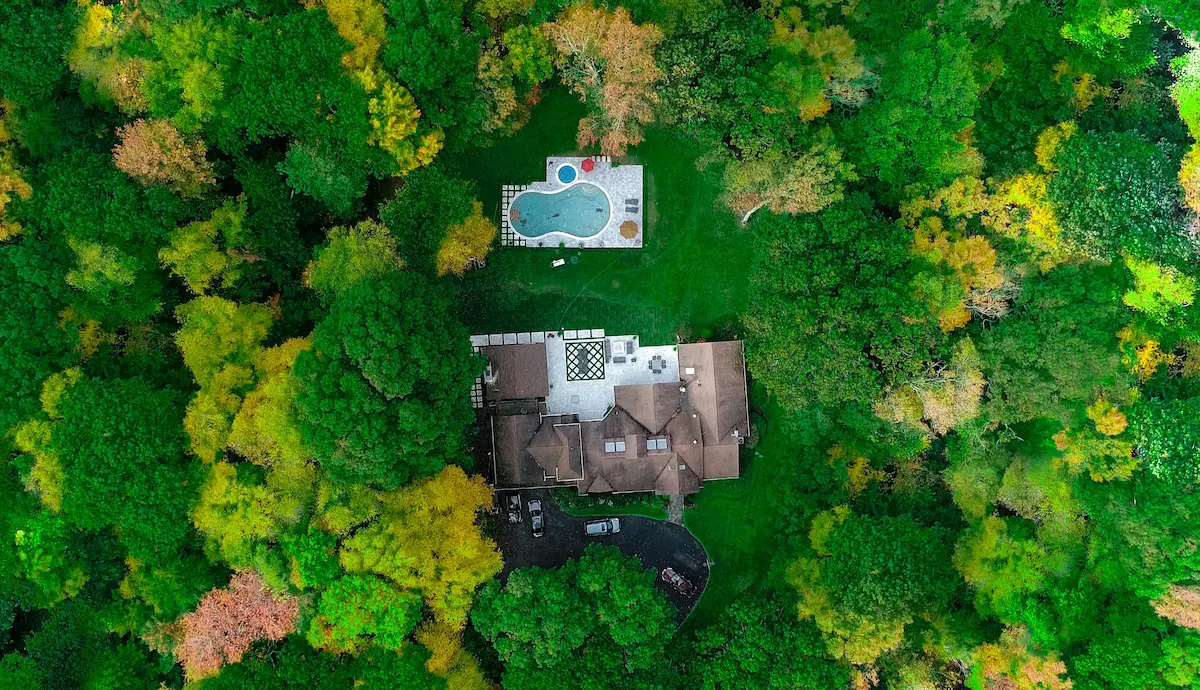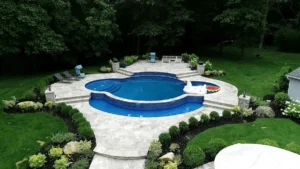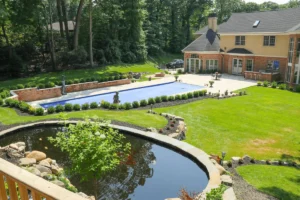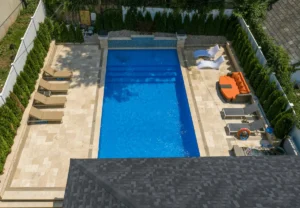Natural stone is mostly for large-scale building jobs and informal applications like government structures and places of worship. Also, it is a part of road construction and monuments. For home construction, brick and wood have been the customary choice. There has been an increasing trend recently in using natural stone for home construction projects and home renovations. Popular places in the home for natural stone applications are fireplaces, countertops, entryways, atriums, bathrooms, floors, and numerous other surfaces.
Natural stone tiles are vulnerable to staining and require sealing after installation. The reason for this is the fact that natural stone is porous. A sealer masks those pores, making the stone less prone to stains and simpler to clean. While some sealers do last forever, the recommendation is to reseal every 12 to 24 months as part of your natural stone care schedule for an average sealer.
The Purpose of Using Natural Stone
Natural stone delivers peacefulness, tranquility, and attractiveness. There are also several advantages to using natural stone in your residence. Natural stone products are sturdier than several artificial products, usually lasting for years with little maintenance. There aren’t any concerns regarding exposure to damaging chemicals in the house or discharged into the air during disposal or production with natural stone. Why put money and time into an imitation? Natural stone is the real thing that fake products try to copy.
Different Kinds of Natural Stone
Natural stone products are available in several types, including granite, slate, marble, travertine, onyx, quartzite, sandstone, and limestone.
Granite
For maintenance-free sturdiness and sophistication, there’s nothing better than granite. Its incredible density and strength make granite the ideal choice for substantial structural projects such as supports, walls, and monuments. Even though it’s the toughest of structural stones, the fantastic assortment of natural patterns and mineral-rich colors deliver an ornamental value too. Granite is perfect for natural stone countertops, flooring, exterior decorations, and vanities.
You’ll find granite in bridges, monuments, buildings, paving, and numerous other exterior jobs. Indoors use granite tiles for stair treads, flooring, countertops, and several other ornamental and everyday projects. Granite is a popular selection because it’s a reputable material used in jobs to create an impression of resilience, grace, and lasting quality.
Slate
Slate breaks naturally into gorgeous textured layers since it comes from hundreds of years of compression and sedimentary deposits. The different shades of slate products like lavender, yellow, pink, brown, dark gray, and more could happen in the same stone piece. Stain-resistant and resilient, slate products are frequently in cladding, flooring, and landscaping.
Marble
Famous for its endless texture, gloss, and texture, as well as a rich assortment of gorgeous colors, marble could go anywhere in a living space. Available in veined varieties and solids, sculpted or carved marble comes in several forms, making it a very multipurpose stone. As a luxury symbol, current technology provides attractive marble products even to homeowners on a budget.
Marble, with its natural warmth, delivers a refined element to the installation or remodeling space. Its inherently random look, engineering features, and simplicity of care make it a top choice for wainscots, floors, vanity tops, wall claddings, and tabletops. Several types of marble are suitable for wet area installation, which encompasses this natural stone’s flexibility to include showers and tub decks.
Travertine
Travertine brings unique, rich character to a host of outdoor and indoor building jobs. Many property owners appreciate travertine for its distressed, banded, pitted look. Hot spring water formed the veins and designs, permeating through underground limestone. For interior usage, filling travertine with grout, cement, or resin is frequently done. The last process is to seal the spot, making a stain-resistant, smooth surface.
Quartz
Glittering and sparkling with little quartz crystals, quartz is a stone-like slate with tremendous strength and a moderate-grained texture. Different mineral content generates numerous color variants from the demure gray, beige, white to more daring shades of pink or purple.
Use quartz for stone wall tiles and natural stone veneers. The non-skid surface makes it an ideal contender for outdoor and indoor flooring, including places exposed to the elements and heavy traffic.
Limestone
The soft, gentle tones of limestone are ideal for today’s comfortable and casual lifestyles. Available in shades of tan and soft beige, either honed or polished, limestone is perfect for fireplaces, bathrooms, flooring, and countertops.





